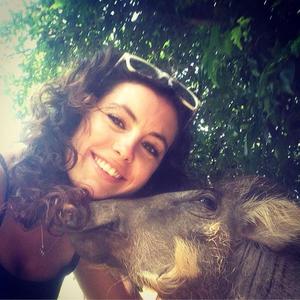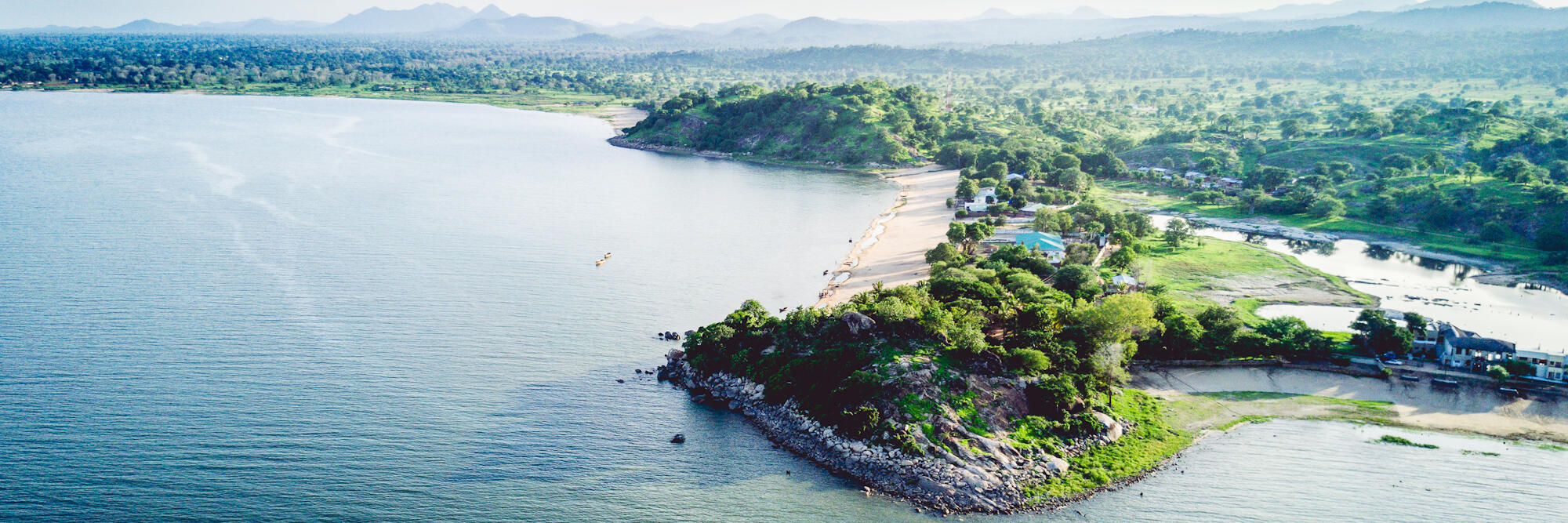Chloe is Scottish by birth. She has spent the last 10 years exploring the African content, starting off as a guide in South Africa and ending up organising safaris in Malawi and Zambia. She loves all nature, with her favourite animal being the dung beetle! She enjoys yoga, hiking, photography, cooking and a good glass of wine or a G&T – is it even a proper sunset if you don’t have a sun-downer?
Chloe currently works for Malawian Style – a specialist safari tour operator based in Malawi, offering a large range of safari adventures in and around Malawi, Zambia and South Africa. For more about the company and Chloe’s work, check out their website.
Read more about Malawi in our Expat Arrivals Malawi country guide.
About Chloe
Q: Where are you originally from?
A: Edinburgh in Scotland
Q: Where are you currently living?
A: I currently live in Lilongwe, Malawi.
Q: When did you move here?
A: July 2017
Q: Is this your first expat experience?
A: No, I lived in the Kruger National Park in South Africa for a year, working as a guide.
Q: Did you move here alone or with a spouse/family?
A: Alone
Q: Why did you move; what do you do?
A: I work in the safari industry and came out here to learn more about the country and what it had to offer. I ended up being offered a job and thought, why not!
Living in Lilongwe
Q: What do you enjoy most about Lilongwe? How would you rate the quality of life compared to your home country?
A: The quality of life is great. Where else can you be in the bush or on the lake in a few hours or at least straight into nature so quickly, but with all the modern conveniences you need around?
Q: Any negative experiences? What do you miss most about home?
A: I do miss the ease of things at home, like the fully stocked supermarkets, food delivery and 24-hour electricity. But a quick trip home a few times a year sorts that out.
Q: What are the biggest adjustments you had to make when settling into expat life here? Did you experience any particular elements of culture shock?
A: Learning to chill out. Malawian time is very slow compared to the UK. Particularly in an industry that is competitive and expects quick responses, it can be hard not to get frustrated, but at $6 a bottle of gin, there are ways of coping!
Q: What’s the cost of living compared to home? Is there anything particularly expensive or particularly cheap in Malawi?
A: It is much cheaper here. Some things, like fuel and cheese, can be expensive. But then again, you can grow vegetables in your back garden and hire help very affordably.
Q: How would you rate the public transport in Lilongwe?
A: I can’t say I have used public transport except for some trusted taxi drivers. It can be tricky to get around without a car, but taxis are cheap. Just get the number of one you trust or is recommended rather than climbing into any car.
Q: How would you rate the healthcare in Lilongwe? Have you had any particularly good/bad experiences with regard to doctors and hospitals? Are there any hospitals you would recommend?
A: Again, I haven’t used much of the healthcare, but I know people who do. Mazam (health insurance) is a must, and the private clinics are great. A lot of the bigger hospitals have plenty of foreign doctors which is funny to think if I ever had to go in, I’d probably be treated by a fellow Scot! I have to say, the pharmacies here are great and sell a variety of antibiotics. The staff here know the symptoms of, for example, malaria or lake parasites well, so I’d always go to one of these first!
Q: What are the biggest safety issues facing expats living in Lilongwe or Malawi? Are there any areas expats should avoid?
A: Safety can be a concern. It is wise to get a guard for the house at night. Ours has never had to be called into action except by our dog, who uses him to get rid of unwanted visitors in the garden (like spiders and snakes). However, having a guard is a deterrent. We also have an electric fence, gate, and panic-button system, which seem to be the norm here. Be safe. Malawi is poor, so keep valuables hidden and locked up; thieves are opportunistic. The same goes for the very poor areas of Lilongwe and some of the larger markets. As an expat, you can expect to pay much higher prices. Bringing your house staff along, or sending them instead when you know what you want to buy, makes this easier. All in all, Malawi is incredibly friendly, and I don’t mind paying an extra 20p for avocados when I usually get a hilarious chat along with them!
Q: How do you rate the standard of housing in Lilongwe? What different options are available for expats?
A: There are lots of options available, from extravagant houses with infinity pools to your normal house-share with other expats to compounded ‘flats’ for those who want to live solo on a budget but around others for security. It’s all about the budget!
Q: Any areas or suburbs you’d recommend for expats to live in?
A: Areas 10, 12, 11 and 43 all have regular power and water and are close to the restaurants, bars, and supermarkets. Area 3 is near the main schools.
Meeting people and making friends
Q: How tolerant are the locals of foreigners? Is there obvious discrimination against any particular group? Have you ever experienced discrimination in Lilongwe?
A: Pretty tolerant. Of course, you pay more than a local, and you have to get used to Malawi time, but all in all, people are friendly to you if you are to them. It is natural to feel something when you are a minority, but on the whole, you are treated very nicely here.
Q: Was meeting people and making friends easy? How did you go about meeting new people?
A: Super easy. Joining gyms and heading to the local bars all help. Let’s be honest; Lilongwe is small, so if someone is hosting an event at bars like Nyumba 10, Orchid, La Cantina, or Kaza Kitchen, go along, and you’ll meet the local crowds there. Sport is also a great way to meet people. From the gyms to the sports teams to watching matches at the bar, you should find someone to cheer you on!
Q: Have you made friends with locals, or do you mix mainly with other expats? What advice would you give to new expats looking to make friends with the locals?
A: It’s a real mix – I have more local friends at work and in the gym and more expat friends who I socialise with at the weekend drinking or at barbecues, or braais as Africans call them. Again, it’s just about who you talk to and where you go. If you would prefer more local immersion, chat with your colleagues or head out to non-expat bars at the weekend!
Working in Lilongwe
Q: Was getting a work permit or visa a relatively easy process? Did you tackle the visa process yourself, or did you enlist the services of an immigration consultant?
A: Yes, for the most part, it was pretty painless. My work helped me through it. I believe they have a contact who eased the process. Most people know someone, so ask around if you need help.
Q: What is the economic climate in the city like? Do you have any tips for expats looking to find a job? Which resources did you find most useful?
A: I think it’s best to have a job before you come unless you work in hospitality. Most NGOs or bigger companies will have hired you and sorted your visa before arrival.
Q: How does the work culture differ from home? Do you have any tips for expats doing business in the city or country? Have you had any particularly difficult experiences adapting to local business culture?
A: As a loud, outspoken, independent woman, just be aware that women are not the force field they are at home. Whilst you are well within your rights to do what you want within the expat community, men may ignore you in favour of a partner or stare if you are dressed for the beach in the city. It is common here to ask for money or loans; just be careful not to get caught up in that. Business-wise, it has been fine for the most part. My clients are international, so we don’t have many problems.
Family and children in Lilongwe
Q: How has your spouse or partner adjusted to your new home? Do you think there are any specific challenges for a trailing spouse?
A: I met my partner here! So, I can’t comment too heavily. Just be sure your partner has a good hobby, is fairly independent or can be introduced to similarly placed people, i.e. other mothers, etc., so they don’t get bored as there isn’t a huge amount to do here.
Q: Do children settle in easily here? What do you think are the biggest challenges for them during a move like this?
A: Again, as only a mother of dogs, I can’t say too much. I believe education here is good yet expensive. You may wish to look abroad for the later years where education is of very good quality.
Q: What are some of the family attractions and activities in the city?
A: Within the city there is lots to do, like sports, the Lilongwe Wildlife Centre, friendly cafes, playgrounds, areas to go for walks, the lake nearby and farmers markets once a month. Plus, there are many events aimed at family-friendly days like fun runs, vintage car days, cinema under the star evenings, etc.
Q: What are the schools like? Any particular suggestions?
A: I can’t really comment, but Bishop Mackenzie and ABC seem to be where parents send their kids.
Final thoughts
Q: Is there any advice you would like to offer new expat arrivals to Malawi?
A: Bring anything you find essential with you. It can be tricky acquiring first-world stuff here. However, you can get lots made. Clothes and cosmetics, in particular, are hard to find, so bring extra pants and socks. It is all about being creative, and the community is exceptionally helpful in answering any questions. Come with an open mind, plenty of creativity and a sense of humour and patience. A joke will go a long way to get workers motivated, but expect three to four days to actually mean three to four weeks. If all else fails, open the gin and pretend you are preventing malaria with a G&T. It’s amazing that a friendly ear and a sun-downer can help!
► Interviewed October 2019



